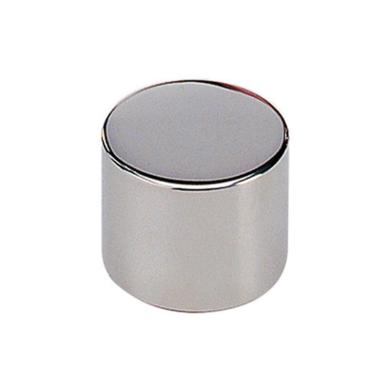Offering the best quotes for your research!
New and used scientific instruments
🚚 Shipping Worldwide 🌎
✉️ info@questpair.com
Radwag E2 Mass Standard - Cylinder Weight - 2 g
Product Description
E2-class mass standards represent an exceptional standard of precision in mass measurement. Classed as E2 metrology class, they are characterized not only by their high accuracy, but also by their versatility for use in laboratories, industry or scientific research.
Key features:
High precision measurements
Stability over Time
Calibration and Strict Quality Control
Versatility of Applications
Cylindrical shape
Nominal value: 2 g
Item Stats
About QuestPair
Our Mission
QuestPair is Europe's leading platform for scientific equipment, connecting researchers and organizations with verified suppliers of both new and pre-owned laboratory instruments in the biotech and material science industry. Our aim is to make the procurement of scientific instruments more efficient, cost-effective, and reliable, so that laboratories can focus on advancing science rather than searching equipment and negotiating deals.
Why Choose Us
Founded by scientists for scientists, we understand your challenges. Our AI-powered platform offers transparent pricing, verified quality, and expert support, ensuring you find the perfect equipment for your research needs.
Verified Quality
Every piece of equipment undergoes thorough verification by our expert team, ensuring reliability and performance.
Cost Efficiency
Access both new and premium pre-owned equipment, saving up to 40% without compromising on quality.
Expert Support
Our dedicated team provides personalized guidance throughout your equipment procurement journey.
Ready to Transform Your Research?
Join thousands of biotech scientists who trust QuestPair for their equipment needs.
What customers think about QuestPair
Brilliant service. Everything arrived and was exactly as expected
Jon Welburn
Great customer service! Got me great options for the equipment I was looking for and in a timely manner.
Pamela
Space Lab Technologies, LLCHarm is very responsive to help me find the right equipment. The product I received is in a good condition.
Ph.D. Hsin-Wen Liang
Northeastern UniversityFrom €54.00ex. VAT
In Stock
Get a quote within one business day
Verified equipment
Trusted warranties & returns
Safe payment and fast delivery
Didn't find what you're looking for?
Our sales team specializes in sourcing custom and hard-to-find products to meet your exact specifications. Submit a request for a tailored quote.
Frequently Asked Questions
Is this equipment new or refurbished?
How long does shipping take?
What about warranty and returns?
Why request a quote?
Need help choosing the right tool?
- Accurate policy information specific to your chosen product
- Clear understanding of warranty coverage and terms
- Detailed return policy explanation
- Transparent shipping options and costs
Customer Service
Here to help you with: Product Inquiries, Shipping & Support, Technical Support, Business Inquiries and Press.
We are available to assist you Mon-Fri, 10am - 5pm CET.
